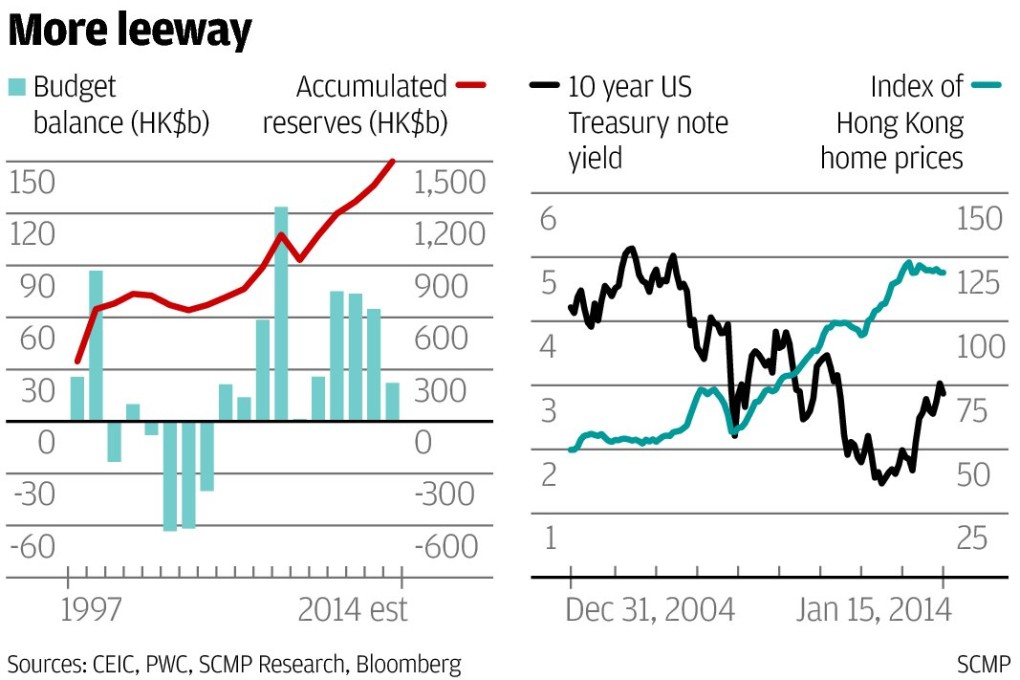Monitor | CY's policies will exacerbate city's coming down-cycle
While his efforts to help the poor are laudable, the chief executive's revenue-raising and home-building plans are going to store up trouble

CY Leung's policy address yesterday contained lots of small things to welcome, and a couple of big ones to worry about.
CY's good intentions of helping Hong Kong's poor, and especially the elderly poor, are highly commendable.
More generous kindergarten vouchers, and free school lunches and fatter textbook grants for the children of poor families are both good ideas.
So is doubling the amount of healthcare vouchers given to old folk, although at HK$2,000 each, the value is still nugatory.
But whether CY's HK$3 billion low-income working family allowance scheme is such a smart proposal is debatable, however. A cynic would say it is merely a HK$3 billion subsidy for employers to allow them to keep wages low.
Still, when it comes to redistributing a little of Hong Kong's wealth to the city's least well-off, the chief executive is clearly thinking along the right sort of lines.
